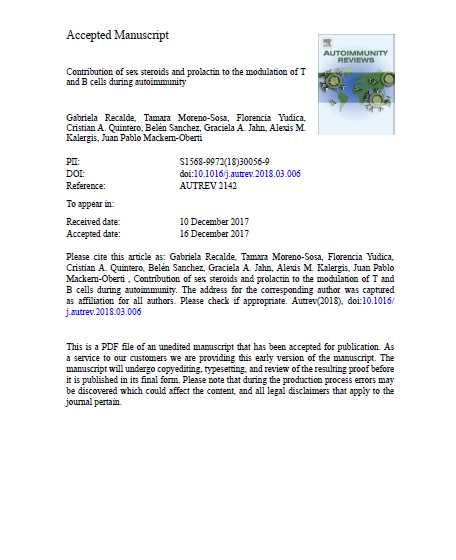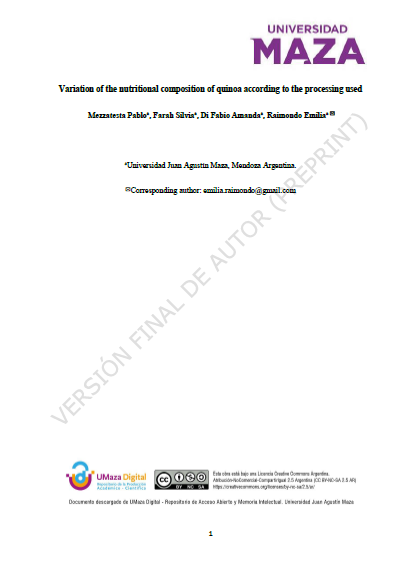Browsing Manuscritos de Ciencias de la Salud Humana by Issue Date
Now showing items 1-2 of 2
-
Contribution of sex steroids and prolactin to the modulation of T and B cells during autoimmunity
(2017-12-16)In this review we discuss how sex steroids and prolactin affect regulation and responsiveness of B and T cells. Sex hormones exert profound effects on several physiological processes of nonreproductive tissues. In the immune system, several studies with experimental models for SLE have shown a noticeable pro-inflammatory role for ERα, contributing to disease development reflected in proteinuria and renal pathology. On the other hand, ERβ appears to have an antiinflammatory and immunosuppressive effect. Estrogen/ERα signaling induced an increase of Th17 cells in lymph nodes as well as the expression ... -
Variation of the nutritional composition of quinoa according to the processing used
(, 2020)In Mendoza, Argentina, quinoa is grown with a very good yield, and its consumption is becoming widespread. It is consumed as a seed, flour, expanded, sprout (germinated) and activated (hydrated). The popular belief is that all these forms have the same nutritional contribution. Taking into account this belief, the objective of this work was to determine the nutritional composition of the different preparations. The same batch of quinoa seeds was processed as flour, expanded, hydrated and sprout. It was analyzed by triplicate, applying conventional laboratory techniques. For the statistical ...











